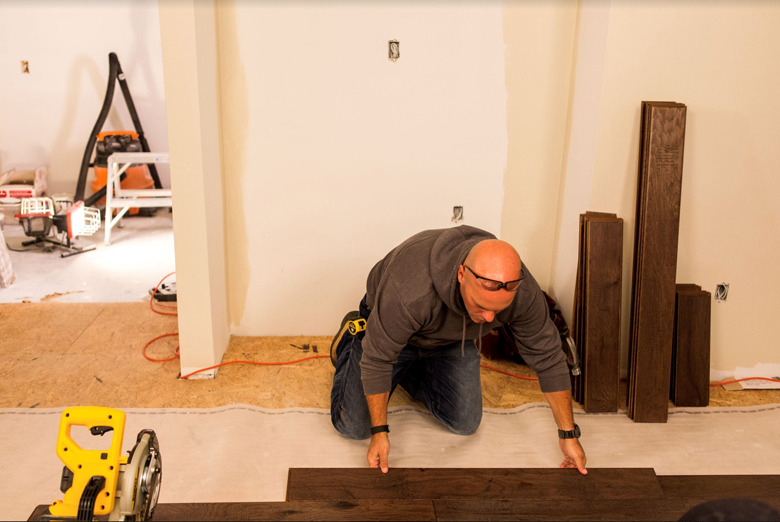
Bryan Baeumler is one of HGTV Canada’s go-to contractors and the host of Bryan Inc., House of Bryan, Leave it to Bryan and Island of Bryan.
Throughout my career, I have worked on hundreds of projects, big and small. From kitchen renovations to buying and restoring an abandoned resort in the Bahamas, I continue to learn something new every day. While there have been many accomplishments throughout my career, there have also been many mistakes. While mistakes are common at any skill level, I see them as an opportunity to learn. For those who are just beginning their careers in construction or looking to start a home renovation project, here are some of the mistakes that I encountered, that I will never make again.
Beginning Renovations Without a Plan
Often, I have seen homeowners dive right into a home renovation without first having a plan. In the earlier days of my career, I too had projects that I would dive into before first establishing a plan. Especially with smaller projects, homeowners may feel like they are able to begin with only a vision and some tools. While this seems great, without first establishing a plan, you can run into problems that you are not prepared for. Do yourself a favour and first start your renovation project by sitting down and mapping out your materials, your budget, your measurements, timeline and what the outcome will look like.
Related: How to Create Your Own Budget-Friendly Home Reno – Without a Contractor
Not Prioritizing the Budget
Your budget should be the key factor in any home improvement project. When I first began my career, I would take the time to plan out the budget for a project. One of the mistakes I made was not having a proper contingency plan. Throughout the years, I have learned that if you are looking to do home renovations, your budget should include a contingency of anywhere between 15 and 25 per cent depending on the size of the project. Many times, homeowners encounter unexpected problems – even I continue to encounter unexpected problems when working on a project. This safety cushion of cash in the budget will ensure that you are covered when anything unexpected comes up. It will also leave you peace of mind while working on your project.

Not Being Prepared for the Unexpected
Being prepared for the unexpected is important in any renovation. Even with smaller projects, you should always be ready for bumps in the road. For any renovation, you should give yourself extra time in your deadline, have the additional funds to support unforeseen issues and be prepared to handle a situation when something doesn’t go to plan. If your plan doesn’t have the extra time or funds, then it can alter the progress of the project, end up breaking your budget or take longer than necessary.
Related: The Top 10 Reno Questions Bryan Baeumler Always Gets Asked
Not Being on the Same Page as Your Partner
Whether it’s your spouse, friend or business partner that is in on a project with you, I’d suggest always being on the same page at all times of the renovation. Making decisions together, discussing opinions and ideas will make for successful teamwork and ensure your relationship stays intact. Staying on the same page as your partner can also limit the amount of errors when it comes down to expectations and adjusting plans. When my wife Sarah and I first began working together, there were times where we would make decisions or change plans without consulting one another. This only ended up causing further problems in our project, which we had to learn to adjust along the way. Now, after years of working side-by-side with Sarah, especially on a project as large as the one we are working on now in the Bahamas, teamwork, compromise and staying on the same page is critical.
Making Everything a DIY Project
Another common mistake that I experienced early on in my career is thinking that every aspect of the project needed to be completed by myself. While DIY is a cost-effective alternative to many aspects of a project, sometimes taking on too much can become overwhelming or can lead to things being done incorrectly. Whether or not your skills are advanced, it is important to be able to distinguish where you can afford to do yourself and where you need to bring in a professional. For anything structural or with the electrical system, it is important to consult a qualified professional.
Photos courtesy of Adrian Smith and Baeumler Productions Inc.
HGTV your inbox.
By clicking "SIGN UP” you agree to receive emails from HGTV and accept Corus' Terms of Use and Corus' Privacy Policy.



